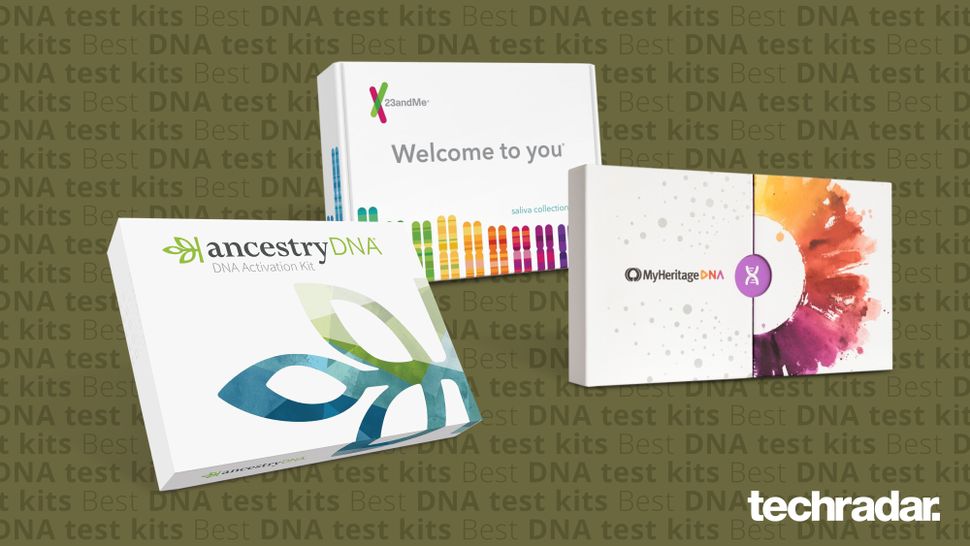Ancestry/Genealogy
Related: About this forumRead This Before You Buy a Genetic Testing Kit: Consumer Reports

- 'Read This Before You Buy a Genetic Testing Kit,' Consumer Reports, Feb. 2, *2021. Ed.
- At-home testing can offer an incomplete picture of disease risk, get ancestry wrong, and compromise privacy -
In spring 2003, excitement about the future of genetic science and its potential to dramatically advance the course of disease prevention and treatment was running high. That April, the National Institutes of Health (NIH) announced that researchers had completed the first full sequence of the human genome—the biological instructions for building the human body, decoded from 3 billion twisted strands of DNA.
The hope was that pinpointing the identity & location of every gene in the body would lead to an understanding of the inherited risks for diseases such as cancer, improve care for conditions like diabetes, & help scientists develop targeted therapies for disorders such as Alzheimer’s, which had eluded effective treatment for years. It was a “historic moment,” Francis Collins, MD, director of the NIH, told a congressional subcommittee at the time. “It is our sincere belief that the newly created discipline of genomics will make a profound difference to the health & well-being of all the people of this world,” he said. This knowledge, however, is also being used toward somewhat less profound ends.
An endeavor that originally involved billions of government dollars & collaboration among thousands of scientists around the globe has yielded not just medical progress but also a slew of consumer products in the form of at-home genetic tests. * The Rise of DIY Gene Testing: For a relatively modest fee, anyone can purchase a direct-to-consumer (DTC) genetic test kit. Users spit into a tube or swab the inside of their mouth to obtain DNA (molecules that form the building blocks of genes), mail the sample off, & receive an analysis a few weeks later. The kits are wildly popular: About 1 in 5 Americans has taken a DTC genetic test, according to an Oct. 2020 Consumer Reports nationally representative survey of 2,000 U.S. adults (PDF). And brands such as 23andMe & Ancestry are household names.
Manufacturers offer a variety of possibilities, including matching you with unknown relatives, telling you which country your ancestors came from, revealing your risk of certain illnesses, & even determining which diet is best for you. But while these tests may offer potentially valuable genealogical or medical insights, experts say results may be easy to misinterpret or could be based on a misapplication of the science. “If you go in there thinking that this test is going to tell you who you are, you’re going to be wrong,” says Wendy Roth, PhD, an assoc. prof. of sociology at the Univ. of Penn. in Phila. A genetic test can also leave you with information you’d prefer not to have about your family or about your risk for an incurable disease. And once data about your genes is shared, it can be sold or even potentially used to discriminate against you. (Find out why your genetic data isn’t safe.) - DIY Tests vs. Doctor Tests...
https://www.consumerreports.org/genetic-testing/genetic-testing-kit-read-this-before-you-buy-a7760054746/
tblue37
(68,368 posts)with expectations that since we are somehow related, they have a door into my life.
appalachiablue
(43,953 posts)problematic relative who emailed material, unsolicited to a young relation they'd never even met. It was intended to smear a couple of people from earlier times but the effort was unsuccessful. The recipient knew about the sender and has a good head.
Apart from this kind of stuff and matters covered in the article, the research and discovery of ancestry is interesting and can be informative and fun. In the last few years I've pursued more info. in addition to what's already known.
Beastly Boy
(13,283 posts)A bigger problem is, the whole world may get to know what you don't want to know. Your DNA data can easily end up in public domain and be otherwise used without your express permission, if you are not careful.
AncestryDNA, for instance, requires you, unless you specifically opt out in writing, grant them a license to use your DNA in any way they please, and exclude you from receiving any benefits from using it:
In other words: we use your Genetic Information to provide products and services to you and improve our products and services for all our users. In addition, you understand that by providing any DNA to us, you acquire no rights in any research or commercial products that may be developed by AncestryDNA using your Genetic Information.
https://www.snopes.com/fact-check/ancestry-dna-steal-own/#:~:text=According%20to%20these%20legal%20contracts%2C%20you%20still%20own,be%20used%20against%20%E2%80%9Cyou%20or%20a%20genetic%20relative.%E2%80%9D
So beware of fine print!
appalachiablue
(43,953 posts)possible. The tests and research sites have become so popular in recent years and I wonder how many users know or care about all the DNA and genetic aspects. In one post I saw, a few people said that the military already had their DNA so they weren't worried about it. I'm all for scientific advances but the mass selling of info. for a buck is a bit icky.
In the last 10 years I've enjoyed watching 'Finding Your Roots,' the PBS program with the historian Dr. Henry Louis Gates. There are interesting guests with their family heritage, records and surprises brought out. A while ago I'm almost certain the show used to have an ad for 'Ancestry' but I haven't noticed it in the last several years.